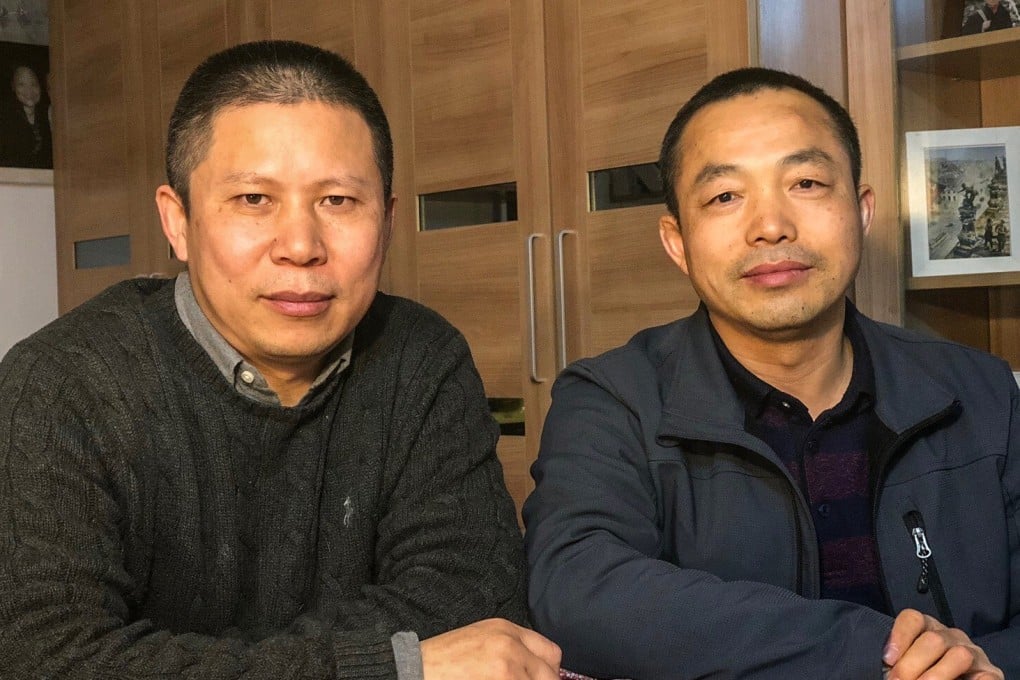Advertisement
Critic of Chinese President Xi Jinping, fellow activist set to face stiffer charge, sources say
- Xu Zhiyong and Ding Jiaxi are expected to go on trial soon charged with subversion of state power rather than the lesser offence of inciting subversion
- Ding’s wife, Luo Shengchun, says she has been denied any correspondence with her husband who has been in detention for the past six months
Reading Time:3 minutes
Why you can trust SCMP

A Chinese former human rights lawyer and an outspoken critic of Chinese President Xi Jinping are expected to stand trial soon on the elevated charge of “subversion of state power” after being accused of a lesser offence six months ago, legal sources said.
Activists Ding Jiaxi and Xu Zhiyong are being held at a detention centre in Linshu, a small county in east China’s Shandong province, according to Ding’s wife, Luo Shengchun, who lives in the United States.
Three lawyers hired by Luo and Xu’s family met prosecutors in Linyi – the city that administers Linshu – on Tuesday and asked for permission to see their clients the following day, Luo said.
Advertisement
“The centre said they would get back to them within 48 hours,” she said. “I can only hope they respect their [Ding’s and Xu’s] right to meet with their lawyers this time.”
The lawyers – Liang Xiaojun, Zhang Lei and Peng Jian – said they had been told not to conduct interviews or discuss the cases.
According to legal sources familiar with their cases, both Ding, 53, and Xu, 47, will be tried for “subversion of state power”, a more serious offence than the “inciting subversion” charge they faced six months ago.
Advertisement
Select Voice
Choose your listening speed
Get through articles 2x faster
1.25x
250 WPM
Slow
Average
Fast
1.25x